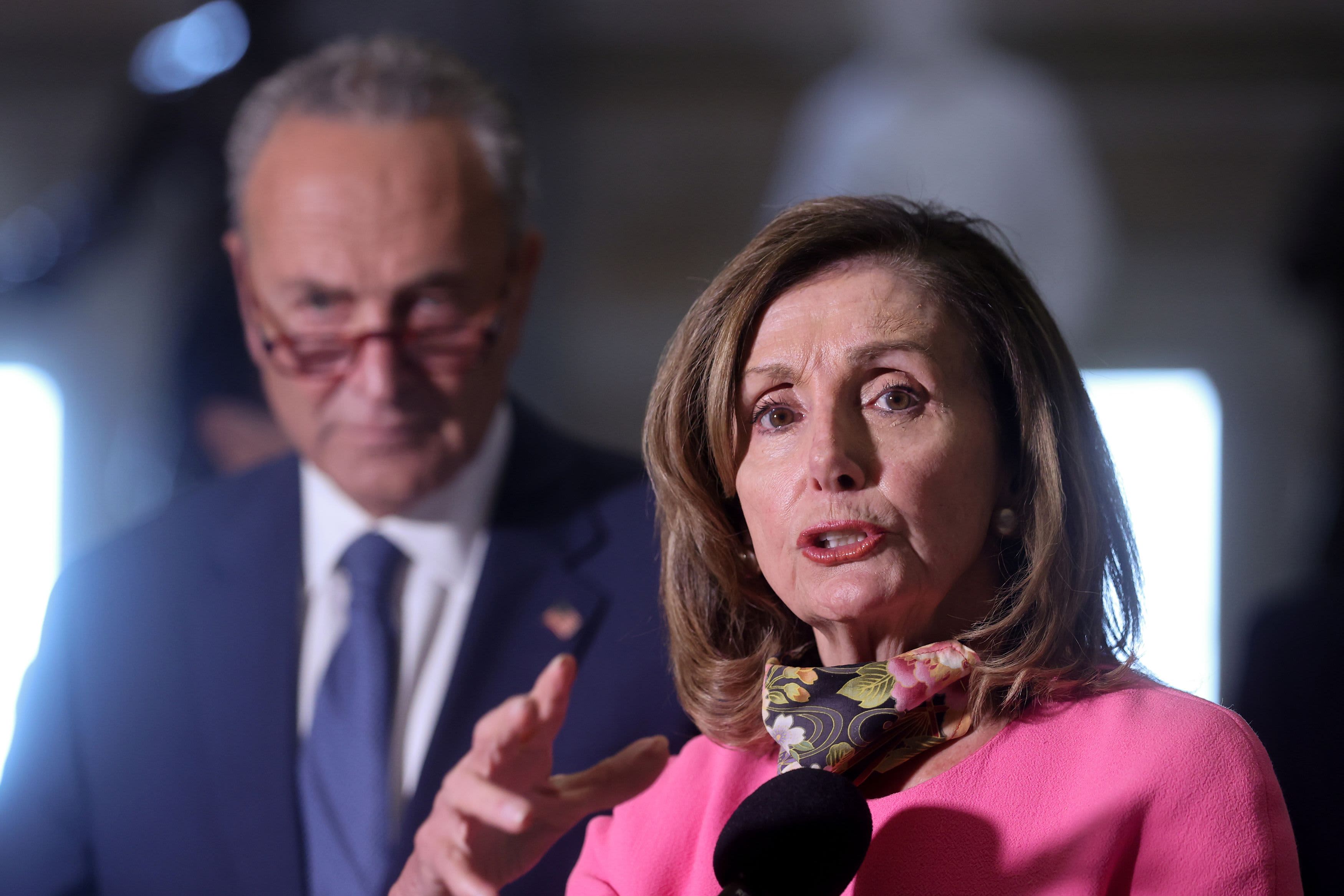
U.S. House Speaker Nancy Pelosi (D-CA) and Senate Minority Leader Chuck Schumer (D-NY) speak to reporters after their coronavirus relief negotiations with Treasury Secretary Steven Mnuchin and White House Chief of Staff Mark Meadows at the U.S. Capitol in Washington, U.S. August 7, 2020.
Jonathan Ernst | Reuters
The trading community is actively debating the effect of more fiscal stimulus on the economy and on the markets, but they sometimes seem to be talking about two different types of stimulus.
There is the one that would come from the negotiations currently underway between House Speaker Nancy Pelosi and Treasury Secretary Steven Mnuchin.
But there is another stimulus that is being debated — the stimulus that could come if Democrats sweep both the presidency and the U.S. Senate.
This second type of stimulus has been largely dismissed by the trading community, but now that the election is near and polls show Biden with a small lead, it is now a subject of some debate and is part of the trading "stew" in the markets.
"Even if there is a stimulus agreement now, that could be a small down payment on what would happen if the Democrats came into power," Marc Chandler, chief market strategist at Bannockburn Global Forex, told me, noting that Democrats, in addition to another general stimulus bill, would likely try to advance infrastructure and healthcare stimulus as well.
Chandler goes even further and says there is a chance, should the Presidency and the Senate remain in Republican hands, that the Republicans would also have their own stimulus in the form of spending increases and even making some tax cuts permanent.
"Trump wants a big infrastructure spending now," Chandler told me. "One way or another, we are likely to get some kind of additional stimulus. That's why the stock market is so resilient."
All of this is hotly debated among traders, with many still dismissing a Democratic sweep as a positive for stocks, regardless of the amount of stimulus promised. "If the Democrats raise the capital gains tax and the corporate tax rate, that is a negative — people are going to sell," Matt Maley, chief market strategist at Miller Tabak, told me.
Maley also believes the Republicans are going to push back hard, as some already are: "The minute the Democrats win power, you are going to see the Republicans go back to their roots and be a lot more fiscally responsible. It is going to be very difficult to enact another massive stimulus program unless the economy completely craters."
To see how far the debate has shifted, look at taxes. The trading community has long viewed Biden's proposed higher tax on corporations and capital gains as a serious negative for stocks, but David Kostin, chief equity strategist at Goldman Sachs, suggests the "mix" of proposals Biden proposes may not be so deleterious to profits: "Our analysis suggests that the combined effects of higher corporate tax rates, more fiscal spending, and lower tariffs would likely result in a similar level of medium-term S&P 500 profits as our baseline forecast that assumes no major policy changes," Kostin said in a recent note to clients.
"A large increase in in fiscal spending, funded in part by increased tax revenue, would boost economic growth and help offset the earnings headwind from high tax rates," Kostin wrote.
Regardless of the outcome, traders seem to agree that the resolution of a highly uncertain election will reduce equity risk — providing we get a clear outcome. That leaves the status of the vaccine, as well as Federal Reserve policy, as the most important stock movers.
Indeed, while the election is occupying everyone's short-term attention, those with a longer view know that ultimately other factors — including a capitalist society and a court system that enforces contracts — are far more important than who the President is.
"History shows the market tends to go up regardless of who is in office," Maley told me.
Subscribe to CNBC PRO for exclusive insights and analysis, and live business day programming from around the world.